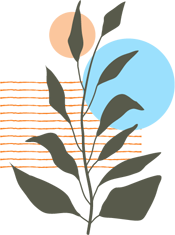[vc_row][vc_column][vc_column_text]When it comes to withdrawal from substance use disorder, there are two stages. The first stage is acute. Physical withdrawal symptoms occur during this stage, usually lasting for a few weeks. The second withdrawal stage is post-acute withdrawal syndrome (PAWS). As its name suggests, it comes after the acute stage. Though physical symptoms reduce in this stage, emotional and psychological withdrawal symptoms become more prominent.
Getting help in Springfield, LA can minimize PAWS symptoms and make recovery more comfortable. Call 844.334.4727 to learn more about how Springfield Wellness Center can get you to lasting sobriety.
What Is Post-Acute Withdrawal Syndrome?
The PAWS stage indicates that your brain is gradually returning to normal, and the effects of alcohol or drug withdrawal are fading away. Emotional and psychological symptoms are observed during PAWS because of the fluctuation in the level of chemicals in the brain as neurological functioning gradually improves. Once the functioning of the nervous system improves, symptoms associated with PAWS also fade away.
What Are the Symptoms of Post-Acute Withdrawal Syndrome?
Symptoms associated with post-acute withdrawal syndrome vary with each individual. Some of the most commonly observed effects of PAWS include:
- Rapid mood swings, irritability, and extreme anger
- Anxiety and depression
- Suicidal thoughts
- Fatigue
- Insomnia
- Lack of motivation
- Loss of memory
- Obsessive thoughts
- Extreme obsession and cravings for the drug
[/vc_column_text][/vc_column][/vc_row][vc_row full_width=”stretch_row” css=”.vc_custom_1544093395977{margin-top: 30px !important;margin-bottom: 50px !important;padding-bottom: 30px !important;background-color: #f2f4f0 !important;}”][vc_column width=”1/2″][vc_btn title=”(225)395-8222″ style=”flat” shape=”square” color=”orange” align=”center” i_type=”the7″ i_icon_the7=”Defaults-phone” add_icon=”true” link=”url:tel%3A(225)395-8222|||”][/vc_column][vc_column width=”1/2″][vc_btn title=”Request a Consultation” style=”classic” shape=”square” color=”orange” align=”center” link=”url:http%3A%2F%2Fwww.springfieldwellnesscenter.com%2Fcontact-us|||”][/vc_column][/vc_row][vc_row][vc_column][vc_column_text]What to Expect During Post-Acute Withdrawal?
The symptoms of PAWS are intermittent and appear in an episodic manner. Each episode lasts for a few days and reappears cyclically. The early days of PAWS can be an emotional and psychological rollercoaster. Your mood may change rapidly due to fluctuations in chemical levels in the brain. You may feel that life is spiraling out of control.
As time passes, the duration between each episode of PAWS becomes longer. However, subsequent experiences can be as severe or last as long as the first. Fortunately, at this stage, you will realize that the condition is temporary and will subside within a few days.
These cyclic episodes associated with post-acute withdrawal usually last for about two years. Hence, it is necessary that people recovering from drug or alcohol withdrawal must to seek professional help managing this condition.
How to Cope with PAWS
The symptoms associated with PAWS are usually completely new for those recovering from drug or alcohol use disorders. Here are a few things that can help in making your life easier.
- Brace Yourself – Many individuals in recovery can bear acute withdrawal symptoms but relapse during the post-acute stage. The reason? They were unprepared for the emotional rollercoaster ride they must go through this stage. Therefore, the first step in getting through with PAWS is to brace yourself. You will soon realize these symptoms only last a few days during each episode. Remaining steadfast and motivated during the post-acute withdrawal stage can help you get through it successfully.
- Stay Active – Exercising has two main benefits besides the obvious improvement in physical well-being. Firstly, when you exercise, your body releases endorphins which elevate the mood and reduce anxiety and depression. Secondly, exercising helps you heal the damage to your brain caused by drug or alcohol addiction.
- Be Positive – Seeking emotional support from a friend or loved one can prevent anxiety and depression from becoming overwhelming. You can also join a support group and share your feelings with people struggling with similar issues. Don’t underestimate the power of emotional support. Keeping a positive outlook can help you get through this.
- Identify the Triggers – Identify any triggers that may initiate an episode of PAWS or worsen your condition. Removing or avoiding these triggers and stressful situations can help reduce the frequency and severity of post-acute withdrawal syndrome symptoms.
- Sleep Well – Besides replenishing strength, sleep helps the body repair damaged cells. When you get a good night’s sleep, your body has plenty of time to repair the damaged cells affected by alcohol or drugs. This can ease PAWS symptoms and promote long-term recovery outcomes.
- Eat Healthy – Your diet directly impacts your physical and mental well-being. By removing caffeine, alcohol, drugs, and other stimulants from your life, you can reduce the severity and frequency of PAWS. Eat a balanced diet containing vegetables, fruits, proteins, whole grains, carbohydrates, and fats.
[/vc_column_text][/vc_column][/vc_row][vc_row full_width=”stretch_row” css=”.vc_custom_1544093395977{margin-top: 30px !important;margin-bottom: 50px !important;padding-bottom: 30px !important;background-color: #f2f4f0 !important;}”][vc_column width=”1/2″][vc_btn title=”(225)395-8222″ style=”flat” shape=”square” color=”orange” align=”center” i_type=”the7″ i_icon_the7=”Defaults-phone” add_icon=”true” link=”url:tel%3A(225)395-8222|||”][/vc_column][vc_column width=”1/2″][vc_btn title=”Request a Consultation” style=”classic” shape=”square” color=”orange” align=”center” link=”url:http%3A%2F%2Fwww.springfieldwellnesscenter.com%2Fcontact-us|||”][/vc_column][/vc_row][vc_row][vc_column][vc_column_text]Start Getting Help in Springfield, LA at Springfield Wellness Center
If you’re struggling with substance use disorder, you don’t have to go through it alone. Seeking professional support for managing PAWS will help you navigate your recovery journey with reduced symptoms. Professional wellness centers like Springfield Wellness Center have special protocols that minimize symptoms and accelerate healing.
If you’re interested in getting help in Springfield, LA, make us your first choice. We use a proprietary treatment protocol based on IV infusion of NAD, which is highly effective in addressing addiction. Contact us at 844.334.4727 or online today and let our qualified medical professionals take good care of you. A healthy and happy life awaits you in treatment.[/vc_column_text][/vc_column][/vc_row][vc_row full_width=”stretch_row” css=”.vc_custom_1544093395977{margin-top: 30px !important;margin-bottom: 50px !important;padding-bottom: 30px !important;background-color: #f2f4f0 !important;}”][vc_column width=”1/2″][vc_btn title=”(225)395-8222″ style=”flat” shape=”square” color=”orange” align=”center” i_type=”the7″ i_icon_the7=”Defaults-phone” add_icon=”true” link=”url:tel%3A(225)395-8222|||”][/vc_column][vc_column width=”1/2″][vc_btn title=”Request a Consultation” style=”classic” shape=”square” color=”orange” align=”center” link=”url:http%3A%2F%2Fwww.springfieldwellnesscenter.com%2Fcontact-us|||”][/vc_column][/vc_row]


